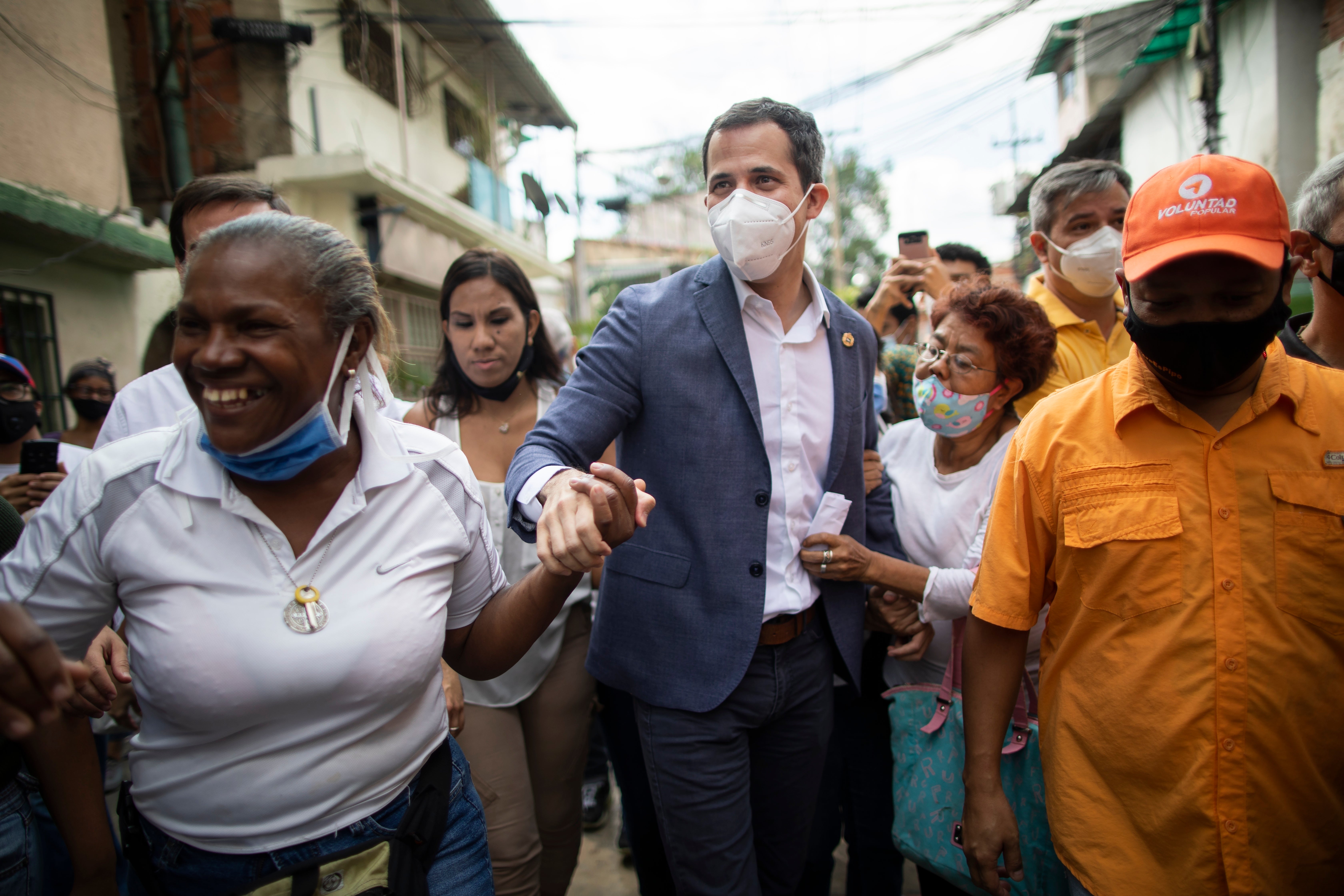Venezuela opposition holds 'consultation' to bolster support
Adversaries of Venezuelan leader Nicolás Maduro are inviting Venezuelans to voice their frustrations with the president in a national survey

Adversaries of Nicolás Maduro are inviting Venezuelans to voice their frustrations in a survey wrapping up Saturday days after the governing party won congressional elections boycotted by the opposition which called the vote a fraudulent maneuver aimed at consolidating the president's power.
Politician Juan Guaidó, who leads the campaign as head of the outgoing National Assembly, is urging Venezuelans to weigh in via cellphone apps or at in-person polling places in Venezuela, other Latin American nations, the U.S. and Europe.
The opposition calls it a “people's consultation ”
“Venezuelans, wherever you are in the world, you’re part of this process,” Guaidó said at a rally Friday in Caracas. He said people crave a way “reject this dictatorship.”
While having no legal force, the survey will unify the foes of Maduro, opposition leaders say. They say that includes the 5 million Venezuelans who have fled the nation's hyperinflation and lack of basic services such as reliable running water, electricity and gasoline.
The survey asks whether Venezuelans wish to end Maduro’s rule and hold fresh presidential and legislative elections, while seeking greater pressure from international allies.
Guaidó, acting as the National Assembly’s leader, proclaimed himself interim president in early 2019, arguing that Maduro was an illegitimate leader because his most popular challengers were barred from running in the presidential election the previous year. Guaidó won broad support at home and from dozens of nations including the U.S., but his efforts failed to weaken Maduro's hold on power, and support for the opposition has weakened.
Risa Grais-Targow, a Venezuela analyst for the Eurasia Group, said that in addition to seeking to unite Venezuelans who don't like Maduro, the referendum is meant to send a message to international supporters.
On Jan. 5, the term of the current opposition-dominated National Assembly ends and Maduro's forces take over the last governmental body not controlled by the president's socialist party, though Guaidó and his political allies vow to continue fighting.
”They’ve organized a process for their foreign partners from the U.S. to the European Union and regional governments," Grais-Targow said. "They can continue to back him even when he’s no longer in control of the National Assembly.”
Domestic support for the opposition has waned as Venezuelans grow frustrated over Maduro remaining in power nearly two years after Guaidó vowed to end his rule and end the nation's crisis.
However, Maduro's popularity is low, too. Just 31% of Venezuela's voters cast ballots in last Sunday's congressional elections — less than half the turnout for the 2015 legislative elections.
Maduro, who accuses the opposition of trying to incite violent street protests and being the source of damaging U.S. sanctions, dismissed the referendum during a televised political rally Thursday.
“Nobody can think that a consultation by internet has any legal or constitutional value,” the president said.
___
Scott Smith on Twitter: @ScottSmithAP
___
Associated Press writer Jorge Rueda contributed to this report.